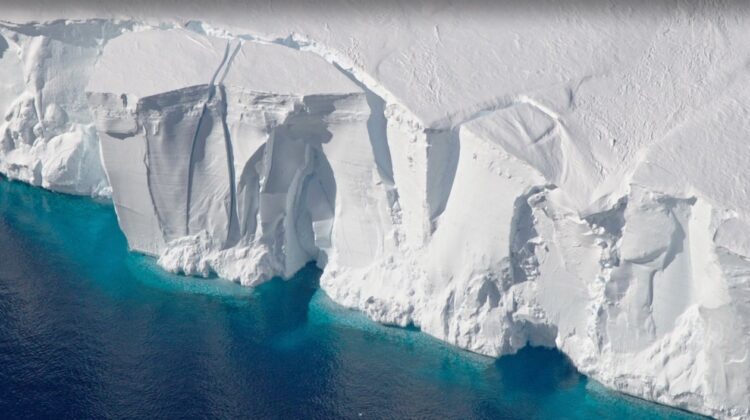
Scientists Warn That Freshwater from Melting Ice is Disrupting Global Ocean Circulation
The world’s strongest ocean current, the Antarctic Circumpolar Current (ACC), is slowing down due to the alarming rate of Antarctic ice sheet melt, according to new research. This critical ocean conveyor, which helps regulate global temperatures and climate patterns, is being disrupted by freshwater influx from the melting ice sheets, leading to potentially devastating consequences for the planet.
How Melting Ice Sheets Disrupt Ocean Currents
The ACC is the largest wind-driven ocean current on Earth, linking the Atlantic, Pacific, and Indian Oceans. It plays a crucial role in redistributing heat, carbon, oxygen, and nutrients, making it essential for maintaining the stability of marine ecosystems and the global climate.
However, researchers from the University of Melbourne and NORCE Norway Research Centre warn that freshwater from melting ice is altering ocean salinity and density, disrupting the mechanisms that drive these ocean currents. Freshwater is less dense than saltwater, preventing the natural sinking of cold, salty water that helps power these currents.

The Devastating Consequences of a Slowing Current
If this slowdown continues, the Earth could experience severe disruptions, including:
- More Extreme Weather Events: A weakening current can exacerbate climate variability, leading to stronger storms, prolonged droughts, and extreme temperature fluctuations in various regions.
- Accelerated Global Warming: A slower current reduces the ocean’s ability to act as a carbon sink, allowing more CO₂ to remain in the atmosphere and worsening climate change.
- Rising Sea Levels: The slowdown could increase coastal flooding in vulnerable regions, especially in the U.S., Europe, and Asia.
- Disrupted Marine Ecosystems: The ACC acts as a barrier against invasive species in the Southern Ocean. If weakened, Antarctic marine life, including penguins and krill, could suffer, causing ripple effects throughout the food web.
How Soon Will the Ocean Current Slow?
The study, published in Environmental Research Letters, suggests that if carbon emissions remain high, the ACC could slow by 20% by 2050. This aligns with findings from climate models run on Australia’s fastest supercomputer, which also indicate that the process of deep ocean water sinking could slow dramatically.

Dr. Taimoor Sohail, a climate scientist, highlighted that the 2015 Paris Agreement aimed to keep global warming below 1.5°C above pre-industrial levels—a threshold many scientists now believe has already been reached or exceeded. This warming trend is intensifying ice sheet melting, further amplifying ocean current disruptions.
The Greenland Ice Sheet Is Cracking Faster Than Ever
Adding to concerns, scientists recently revealed that the Greenland Ice Sheet, the world’s second-largest body of ice, is cracking at an unprecedented rate due to rising ocean temperatures. This further contributes to freshwater influx into the ocean, intensifying the slowdown of major ocean currents.
What Can Be Done to Prevent Further Disruption?
Experts emphasize the urgent need for global carbon emission reductions, investments in climate adaptation, and better ocean monitoring systems to predict changes before they become irreversible.
The melting of Antarctic and Greenland ice sheets is no longer just a future threat—it is happening now. If action is not taken soon, the collapse of Earth’s vital ocean circulation system could become a reality within our lifetime.

Leave a Reply